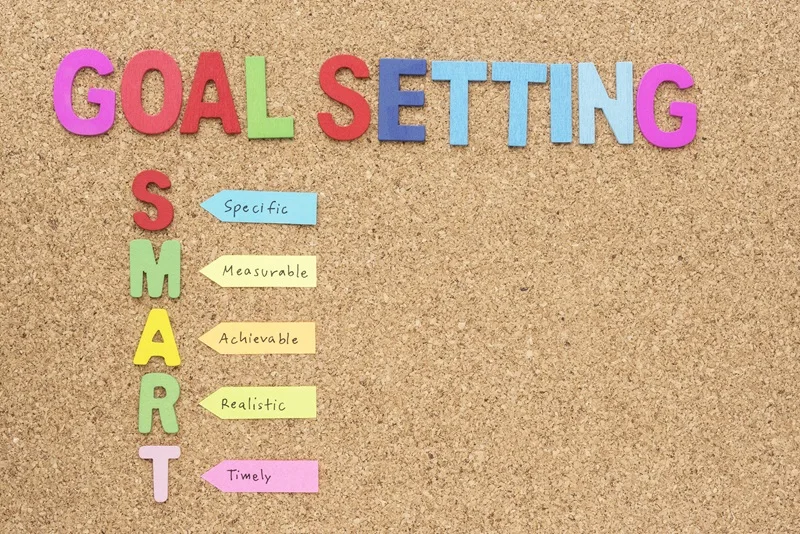Introduction
As the technology landscape continues to evolve, software developers are faced with the challenge of keeping up with the industry’s rapid advancements and maintaining their competitive edge. One of the most effective ways to navigate this dynamic environment is by setting SMART goals – specific, measurable, achievable, relevant, and time-bound. These goals not only provide a clear roadmap for professional growth but also serve as a powerful tool for driving personal and organizational success.
What is your goal as a software developer?
Before delving into the concept of SMART goals, it is essential to reflect on your overarching goals as a software developer. Do you aspire to become a senior developer, lead a team, or perhaps specialize in a particular programming language or domain? Understanding your long-term aspirations will help you align your SMART goals with your broader career objectives.
Understanding the concept of SMART goals
SMART is an acronym that stands for Specific, Measurable, Achievable, Relevant, and Time-bound. Therefore, this framework provides a structured approach to setting and achieving goals, ensuring that they are well-defined, quantifiable, realistic, and time-sensitive.
Importance of setting SMART goals for software developers
For software developers, SMART goals can be instrumental in several ways. They help to:
- Clearly define and prioritize your professional development objectives
- Measure your progress and track your achievements
- Ensure that your goals are aligned with your organization’s strategic priorities
- Boost your motivation and accountability by providing a tangible roadmap
- Facilitate career advancement and skill acquisition

How to write performance goals for a software engineer?
Crafting effective performance goals for software engineers requires a thoughtful approach. These goals should not only reflect your individual aspirations but also contribute to the overall success of your team and organization. By following the SMART framework, you can create goals that are both challenging and attainable.
Specific goals for software developers
The “S” in SMART stands for specific, meaning that your goals should be well-defined and clear. Instead of a vague goal like “Improve my coding skills,” a specific goal could be “Enhance my proficiency in React.js by building a complex web application with state management and API integration.”
Measurable goals for software developers
The “M” in SMART represents the need for goals to be measurable. For example, this could involve tracking the number of features implemented, the percentage of code coverage, or the reduction in bug reports. Consequently, quantifiable metrics allow you to monitor your progress and evaluate the success of your efforts.
Achievable goals for software developers
The “A” in SMART stands for achievable, which means that your goals should be realistic and within your reach. While it’s important to challenge yourself, setting overly ambitious targets can lead to frustration and demotivation. Consider your current skills, resources, and constraints when defining your goals.
Relevant goals for software developers
The “R” in SMART denotes the relevance of your goals. They should align with your broader career aspirations and the strategic objectives of your organization. Ensure that your goals contribute to your professional development and the overall success of your team and company.
Time-bound goals for software developers
The “T” in SMART represents the time-bound nature of your goals. Assign specific deadlines or milestones to your objectives, such as “Implement the new authentication system by the end of the next quarter” or “Achieve a 90% code coverage rate within the next six months.”
How to set SMART goals for software developers
To effectively set SMART goals, follow these steps with careful consideration. Begin by reflecting on your current skills, strengths, and areas for improvement. Next, align your goals with your long-term career aspirations and your organization’s strategic priorities. Then, clearly define your goals, ensuring that they are specific, measurable, achievable, relevant, and time-bound. Break down larger goals into smaller, more manageable sub-goals or action steps to facilitate progress. Finally, communicate your goals with your manager or team members to ensure alignment and accountability throughout the process.
Tracking progress and evaluating SMART goals
Regularly monitoring your progress and evaluating the effectiveness of your SMART goals is crucial for maintaining momentum and achieving success. This process involves several key actions. Firstly, establishing checkpoints or milestones allows you to assess your progress systematically and make necessary adjustments. Gathering feedback from your manager, colleagues, or mentors provides valuable insights and perspectives that can inform your decision-making and refine your approach. Additionally, adjusting your goals or strategies as needed ensures they remain relevant and achievable amid changing circumstances or priorities. Transitioning between these actions ensures a dynamic and adaptive approach to goal management, promoting continuous improvement and sustained progress towards your objectives.
Examples of SMART goals for software developers
Here are some examples of SMART goals for software developers, each illustrating a different aspect of effective goal-setting:
- Firstly, Specific: Develop a new mobile app for the company’s flagship product using React Native and complete the project by the end of the current fiscal year.
- Secondly, Measurable: Increase the code coverage of the existing codebase from 80% to 90% within the next six months.
- Thirdly, Achievable: Earn the AWS Certified Developer – Associate certification by the end of the next quarter.
- Fourthly, Relevant: Become proficient in the latest version of the company’s primary programming language (Python) within the next year to contribute more effectively to the team’s projects.
- Lastly, Time-bound: Implement a new CI/CD pipeline and reduce the average deployment time from 30 minutes to 15 minutes within the next three months.
Transitioning between these examples demonstrates how SMART goals can be applied effectively to drive progress and achievement in software development. Moreover, these goals not only provide clarity but also ensure a structured approach to personal and professional growth in the dynamic field of software development.
Benefits of setting SMART goals for software developers
By embracing the SMART goal framework, software developers can unlock a multitude of benefits. This includes increased focus and productivity, as well as enhanced job satisfaction and career progression. Additionally, it facilitates improved time management and prioritization of tasks, fostering stronger collaboration and alignment with team and organizational objectives. Moreover, it promotes continuous learning and skill development, leading to measurable progress and a sense of accomplishment.
Resources and tools for setting and achieving SMART goals
To support your SMART goal-setting journey, consider exploring a variety of resources and tools. Firstly, online goal-setting templates and worksheets can provide structured frameworks to articulate and refine your objectives. Additionally, project management software equipped with goal-tracking capabilities offers real-time visibility and progress monitoring. Books and articles on effective goal-setting and personal development provide valuable insights and strategies to enhance your approach. Engaging in mentorship programs or seeking career coaching services can offer personalized guidance and feedback. Moreover, participating in peer-to-peer support groups or joining online communities for software developers fosters collaboration, shared experiences, and valuable networking opportunities. Transitioning between these resources can enrich your goal-setting process, providing diverse perspectives and practical tools to achieve your objectives effectively.
Conclusion
In the dynamic world of software development, setting SMART goals is not just a recommended practice – it’s a necessity. By aligning your professional aspirations with this structured approach, you can unlock a path to sustained growth. Additionally, it leads to increased job satisfaction and enables meaningful contributions to your organization. Embrace the power of SMART goals, and embark on a fulfilling journey towards your software development success.
Start your journey to success by setting SMART goals today. Read our article Objectives and Key Results Software Can Transform Your Business.









Leave a Reply